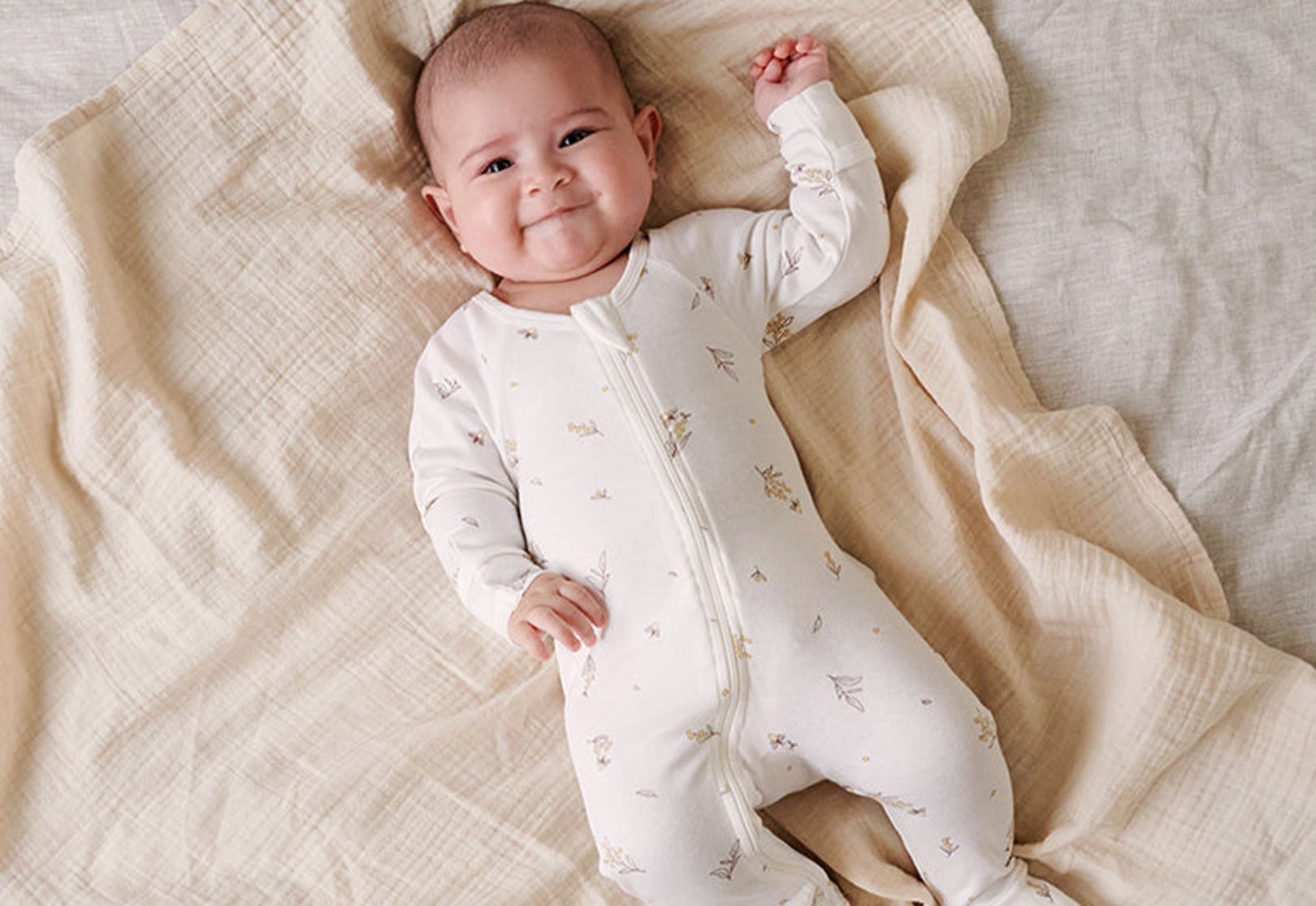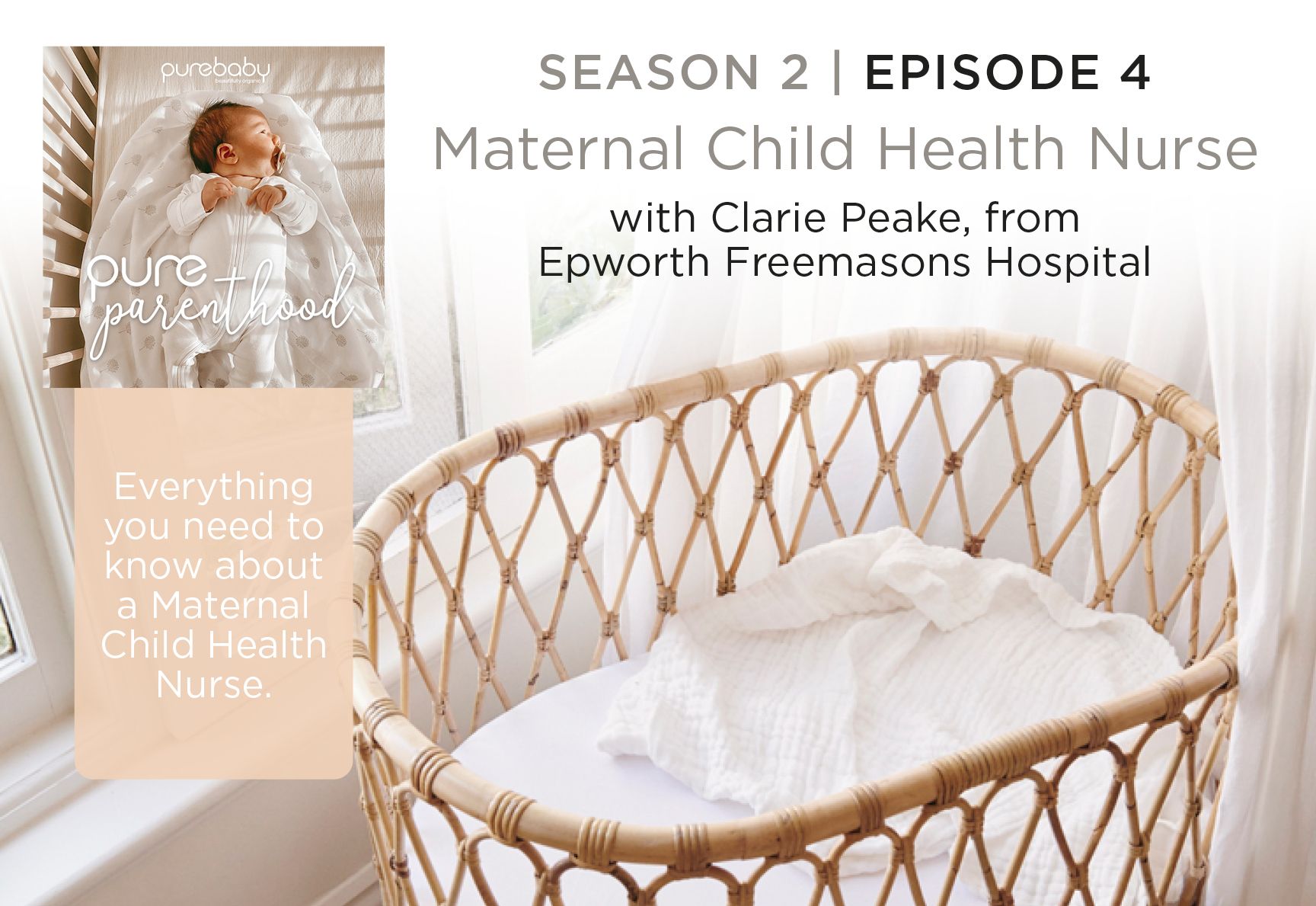
Newborn Baby Clothing Checklist
10 min read | 1 September 2023
New In
Essentials
Clothing
Accessories
Shop By Gender
Shop By Size
Collections
Baby
Clothing
Accessories
Shop By Gender
Shop By Size
Collections
Nursery
Care
Play
Kids
Clothing
Accessories
Shop By Gender
Shop By Size
Collections
Care
Play
Gifts
Baby Gifting
Kids Gifting
Shop By Price
Shop By Event
Shop By Gender
Sale
Sale
Shop By Gender
Learn
Education
Resources
Pre-Loved
Rewards
9 min read | 21 March 2021

In Victoria, a Maternal and Child Health Nurse (MCHN) is a qualified Registered Nurse and Registered Midwife with an additional qualification in Maternal and Child Health.
A Maternal Child Health Nurse will focus on the growth and development of your baby, as well as supporting the entire family unit as a whole. This usually includes helping new parents with their health and wellbeing, their baby’s development, behaviour, immunisations, feeding and settling. Additionally, a MCHN can connect families to local support networks within the community, write referrals and run new parents’ groups for first-time parents.
When you are pregnant it is the midwives, obstetricians or general practitioners who are usually your lead care providers, however, in Victoria, when you leave the hospital your care is taken over by a MCHN in your local council. You will have regular appointments at set key age and stages to track the growth and development of your baby or child.
Midwives have expertise in pregnancy, birth and the first 6 weeks postpartum, whereas Maternal Child Health Nurses focus on the growth and development of babies and children up until 6 years of age.
In general, your MCHN is there to be a great support system for you in the community. You may not have 24-hour access to your particular nurse, however there is the Maternal and Child Health Line that is available 24 hours a day, 7 days a week which connect you directly to experienced nurses on the other line.
MCHN’s also provide families with evidence-based information regarding the health and wellbeing of the child and family. They aim to develop and maintain collaborative relationships with parents and families and help connect them to services within the local community. You will see a Maternal Child Health Nurse for ten key ages and stages where they will focus on health promotion, weighing and measuring your baby or child, checking your child is up to date with their immunisations and assisting with any referrals that may be needed.
A nurse will conduct a home visit usually in the first 7-10 days following the birth of your little one. This is an opportunity for the nurse to see how things are going in the home environment. The nurse will also check where the baby is sleeping during the home visit and weigh your baby. The focus of the first home visit is mostly based around gathering information, discussing any concerns, assessing feeding and ensuring recovery from the labour and birth is going well.
Each time you see your Maternal Child Health Nurse, you will receive lots of advice and support on a multitude of topics. Some of these topics may include:
Growth, development and newborn behaviours
Feeding: Breastfeeding or bottle feeding, starting solids and healthy eating
Sleep and settling, including the period of Purple Crying
Prone play
Immunisations
Postpartum recovery
Self-care
Car safety
Safety in the home
Family relationship and wellbeing
In Victoria, you will see your MCHN for 10 key age and stage visits. The first visit will be at home, with all subsequent visits being at either your local council or other location.
At home visit, 7-10 days after the birth
2 weeks of age
4 weeks of age
8 weeks of age
4 months of age
8 months of age
12 months of age
18 months of age
2 years of age
3.5 years of age
Your baby will be weighed and measured at each of these sessions, however the topics discussed will vary depending on the age and stage of your little one.
The Period of PURPLE Crying relates to common characteristics of an infant’s crying during the first few months of life. PURPLE is an acronym that stands for:
Peak of crying
Unexpected
Resists soothing
Pain-like face
Long Lasting
Evening
The peak of crying usually happens at 2 months of age and then usually settles around 5 months of age.
To become a MCHN you need to have already completed a Bachelor of Nursing and Midwifery and worked for a minimum of 1-year Full Time in each area before applying to study the Post Graduate Diploma or Master’s Degree in Child and Family Health. This can vary depending on the route that you study and which university you attend.
Normalise newborn behaviours.
There is so much focus on the pregnancy, birth and immediate postpartum periods, however there usually isn’t much information for new parents taking their baby home for the first time.
Read your baby's cues.
Your baby’s body language gives you important cues about whether they are tired, hungry, ready to play or needing a break. It is important that parents learn their babies’ particular cues, which will then allow them to respond appropriately to their baby’s needs.
Limit the amount of visitors you have
in the first few weeks of bringing your little one home. Allow some time to settle and recover from both the labour and birth.
Routines
. Try not to put too much pressure on yourself to start a strict routine until the baby is around 6-8 weeks old.
Ensure you
frequently burp your baby
throughout feeds and throughout the day.
Ensure to do
lots of tummy time
with your baby. You can start this straight away.
Care for dry skin
. It is normal for your little one’s skin to be dry. You can use gentle, non-perfumed moisturiser on their skin after a bath.
Ask for help if you need it
. Having a new baby can be a very anxious time for some parents. Utilising your support system, whether that is your partner, friend or family member. Asking for support to help or give you a break, even if it’s just for an hour so you can have a shower.
. A website with evidence-based, up to date information for new parents
. A 24-hours a day, 7 days a week telephone helpline that provides immediate expert advice with a Registered Nurse.
Maternal and Child Health Helpline.
24-hours a day, 7 days a week telephone helpline providing advice from a Maternal Child Health Nurse.
Australian Breastfeeding Association
. A service that supports and encourages women who want to bread feed or provide breast milk for their babies.
This article was written by Claire Peake from Epworth Freemasons Hospital, in conjunction with Season two, episode 1 of Purebaby’s podcast, Pure Parenthood. Claire is a Maternal Child Health Nurse, registered nurse and midwife at Epworth Freemasons Hospital. To learn more about Epworth Maternity, visit their website or Instagram.
Purebaby also offers a range of helpful information and tips via online webinars sessions and our newborn checklists.
Sign up to Pure Love Rewards and get $10 off your first online order, earn points every time you shop and more!